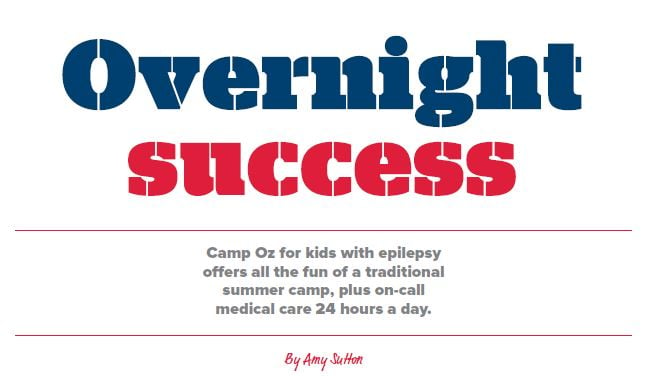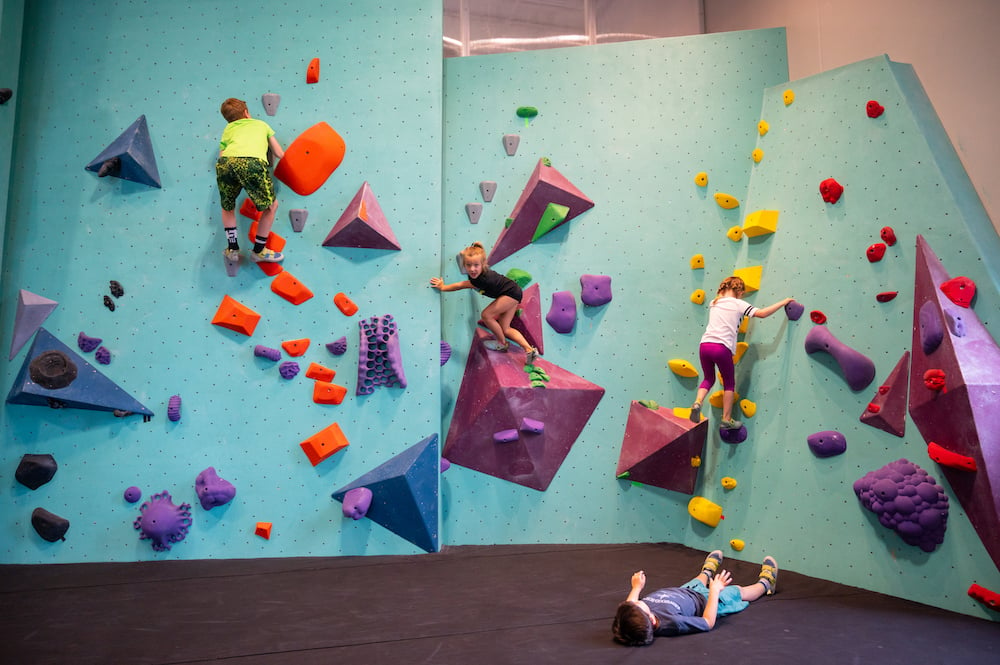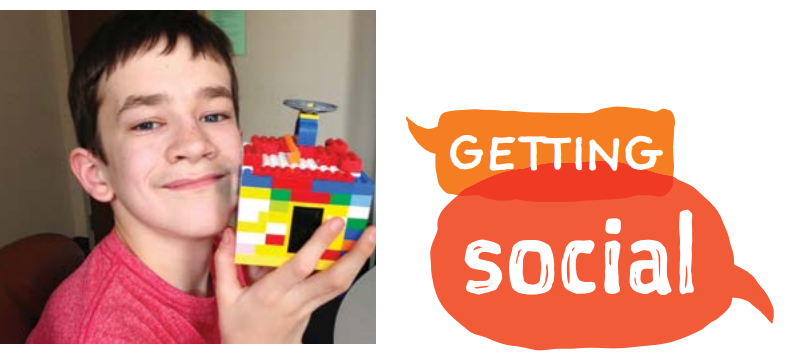Kids cooling off with a swim in a lake, testing their knowledge of nature on an afternoon hike, scoring a goal during an intense game of soccer, talking with new friends around a bonfire and riding a horse for the first time: This is what Camp Oz is all about — traditional camp experiences kids will remember into adulthood.
So what makes this summer camp so special?
Its campers happen to be children with epilepsy.
Bringing kids together from throughout the Midwest and from as far away as Idaho and Georgia, Camp Oz is focused on allowing kids from age 9 to 17 to have fun, build friendships and discover a community of more than 100 kids coping with the challenges of epilepsy.
Another special feature? Families pay only $200 for the entire week of overnight camp, including meals, lodging, activities and medical staff, thanks to grants and fundraising by the Epilepsy Foundation of Minnesota.
Kids at Camp Oz get a chance to bond with other kids who have epilepsy just like them, said Camp Oz director Nikki Baker, who works for the Epilepsy Foundation of Minnesota, which runs Camp Oz.
“For many of these kids, they don’t know anyone else their age who has seizures,” Baker said.
Not only are the kids just like them, but the camp is also just like any other camp.
It’s not slowed down or low key, Baker said. In fact, Camp Oz is housed on the grounds of a traditional camp — YMCA’s Camp St. Croix, just across the Minnesota border near Hudson, Wis.
Oz also utilizes counselors from Camp St. Croix’s camp staff who’ve had special training in seizure recognition and response. Siblings who don’t have epilepsy are also welcome.
Camp Oz is a camp for youth with the primary diagnosis of epilepsy or seizures. Oz staffs 12 nurses who are on site 24 hours a day.
In addition, there are pharmacists, neurologists and psychologists — plus a pediatric epileptologist — on site from 8 a.m. to 5 p.m.
Through a camper’s eyes
Fourteen-year-old Alex Fischer of Plymouth, a three-summer veteran of Camp Oz, described a typical day at camp: “We get up around 8 and eat breakfast with the entire camp. Then you have your three or four main activities of the day, swimming, team building, arts and crafts, all the good usual camp stuff.”
Alex’s favorite activity? Swimming in the lake.
Thinking back on his first day of camp, Alex admits he was nervous.
“It was my first stay-away camp, and it was for a week,” he said. “But I was excited because I’d meet new people living with the same disease as me, and I thought that’d be a cool experience.”
Before going to Camp Oz, Alex hadn’t known anyone else who’d had seizures. He had even attempted to hide his diagnosis.
“I thought that would be safer to keep it inside,” he said. At Camp Oz, he didn’t feel he needed to do that and he found it easy to make friends at camp because, “Hey, they’re just like me.”
Alex also has admiration for the staff.
“The counselors are a really funny group of people,” he said. “And they’re honestly good, responsible camp leaders. They’re always making sure that everyone’s on task and part of the group. No one’s left out. They make sure everyone has a good time.”
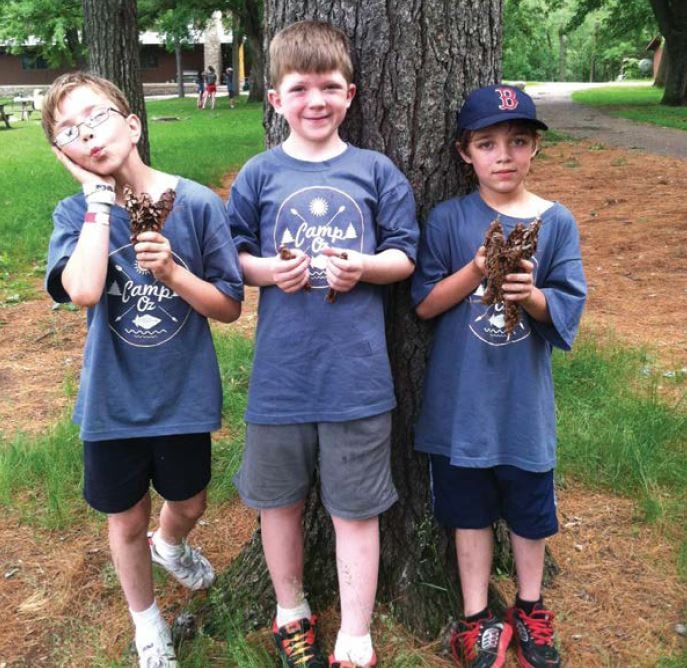
Keeping costs low
Camp Oz’s weekly fee is far lower than the actual overnight camp cost of $1,600 per camper. How does the Epilepsy Foundation do it?
“Years ago, we used to charge families what the YMCA charged us,” Baker said.
But about 10 years ago, the foundation was offered a grant that allowed the group to drop the cost to $200 per child.
Camper numbers soared.
“Even though we’ve always offered financial assistance, it was a pride thing. People don’t want to ask,” Baker said.
When that grant dried up, Camp Oz refused to raise their prices, Baker said, adding: “We work hard to fundraise year-round so that camp is an option for people.”
Camp Oz received an especially meaningful financial boost: University of Minnesota head football coach Jerry Kill and his wife, Rebecca, announced the creation of the Chasing Dreams Coach Kill Epilepsy Fund. A portion of the fund will be designated for Camp Oz, allowing the camp to maintain its exceptionally low price point and expand its capacity.
“It’s allowing brand-new kids to camp that we otherwise couldn’t have had,” Baker said.
Coach Kill, one of more than 3 million people in the U.S. diagnosed with epilepsy, is also actively involved in Camp Oz, often stopping by and talking to the kids about how he manages his epilepsy with his high-stress job.
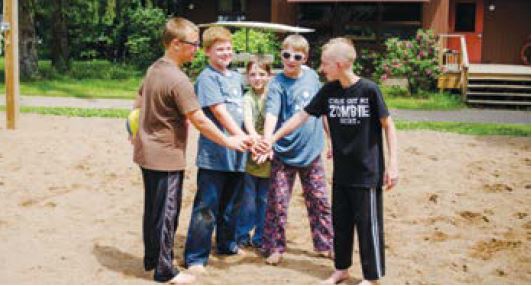
Easing parent concerns
Sending a child with epilepsy to any camp, even one that specializes in epilepsy, can be an emotional challenge for many parents, said Dr. Michael Frost, a pediatric neurologist who’s been involved with Camp Oz since 1992 and has served as its medical director since 1998.
“Sometimes it’s harder to convince the parents to let the kids come than it is to convince the kids,” he said.
To alleviate parent concerns, Frost emphasizes that each child can access multiple medical professionals 24 hours a day. He also said seizures haven’t been a major issue at Camp Oz.
“In the past five years, I don’t think we’ve sent anyone home because of seizures,” he said. The most common health complaints? “Scrapes and bruises or poison ivy, all those things that make camp fun,” Frost said.
For the kids, the emotional benefits can be significant.
Alex Fischer said: “Camp has made me a better person by showing me to not be afraid of having epilepsy, meaning that I shouldn’t be ashamed of having it.
Coach Kill, he does a great job of showing how he lives with his epilepsy and deals with it. So I can live my life great and deal with it great.”
Alex’s father, Marcus Fischer, said his fears about letting his son attend camp were eased when he checked him into camp, which also involved checking in medications.
“I wanted to make sure the camp had enough precautions, but at the same time I wanted it to be a regular camp. And it’s 100 percent a regular camp,” he said. “All the safety precautions are there. As a parent, it’s an immediate feeling of ‘This is being taken care of. I can relax and focus on him just having a good time.’”
Alex agrees: Parents needn’t be nervous.
“This is one of the safest places for your kids to go,” he said. “Everyone is kind and loving to each other.”
His father, nodding, in agreement, said: “Look at it. Do your research. But bottom line: It is a wonderful experience.”
Camp Oz
What: This Epilepsy Foundation-run camp combines traditional camp experiences with the security of 24-7 medical staff. Siblings who don’t have epilepsy are also welcome.
Dates: Day Camps and Family Camps throughout summer months
Location: YMCA Camp St. Croix, 532 County Road F, Hudson, Wis.
Ages: 9–17
Cost: $200 for the week; financial assistant is available.
Info: https://www.epilepsyfoundationmn.org/connect-with-others/camp-programs/ or contact Joel Prater [email protected]
WHAT IS EPILEPSY?
Epilepsy is a group of neurological disorders characterized by a tendency for recurrent seizures or convulsions. Epilepsy can’t be cured, but in many cases the seizures can be controlled through medication. Learn more at
epilepsy.com.



